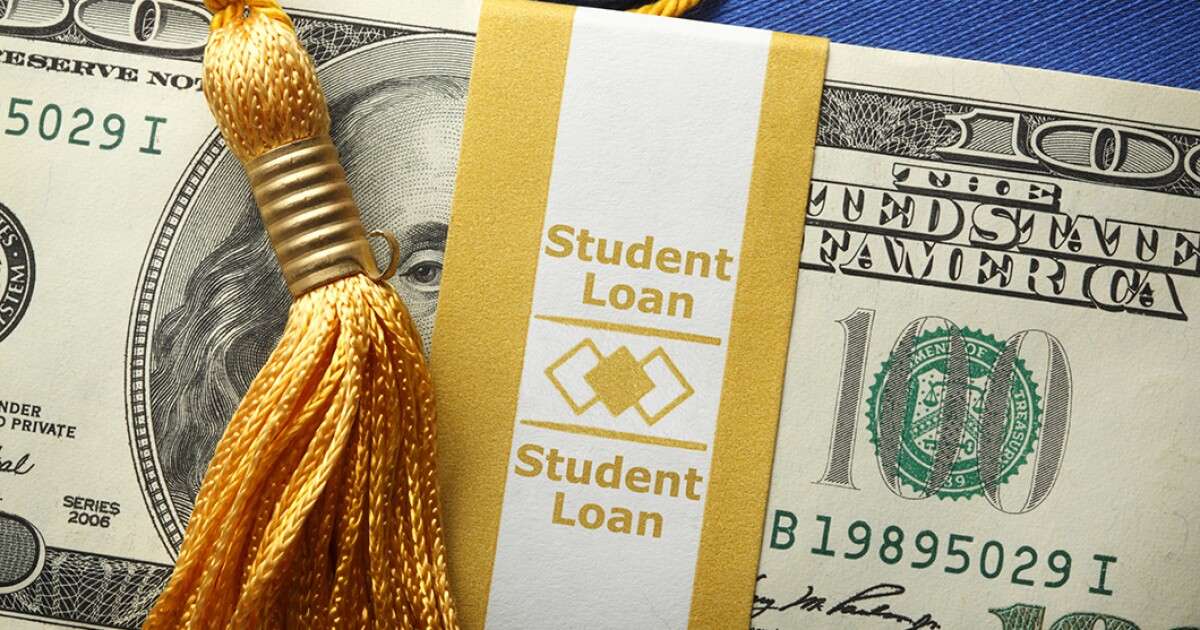

Interest rates on federal student loans began on Friday after a three-and-a-half-year pause due to the COVID-19 pandemic, with borrowers’ first payment due in October. During that pause, several court cases have been considered regarding the fate of student loan relief and allocation.
President Joe Biden announced on Thursday that his administration wiped out $72 million in student loan debt from 2,300 borrowers, a win for the president after the Supreme Court struck down his sweeping debt relief plan.
CALIFORNIA IS GROUND ZERO FOR RETAIL THEFT PROSECUTION CONTROVERSY
Here are some court cases and settlements that have involved student loan forgiveness in recent months.
Biden v. Nebraska
Six Republican-led states, Arkansas, Iowa, Kansas, Missouri, Nebraska, and South Carolina, filed a lawsuit against Biden’s plan to eliminate $20,000 in student debt for tens of millions of Americans that would amount to $400 billion.
The states argued that Biden overstepped his authority by moving to cancel debt without authorization from Congress. The president argued that the Heroes Act of 2023 granted the secretary of education the power to make changes to the federal loan system. However, the six states argued the forgiveness plan went beyond the scope of the law.
On June 30, the Supreme Court struck down Biden’s plan in a 6-3 ruling. Chief Justice John Roberts wrote the majority opinion, saying that the program needed clear congressional authorization.
Department of Education v. Brown
Two plaintiffs, Myra Brown and Alexander Taylor, sued the Department of Education over Biden’s sweeping loan forgiveness plan, as well. The pair argued that Biden deprived them of their “procedural rights” by not consulting the public on the scope of the plan. As a result, they were either partially or fully excluded from the plan.
The Heroes Act exempts the need for a notice-and-comment period during national emergencies. However, similar to the six GOP states, the plaintiffs in this case argued that that law doesn’t authorize Biden’s plan, so that rule would not apply.
The Supreme Court ruled unanimously against Brown and Taylor in favor of Biden. The justices concluded that the plaintiffs lacked the legal standing to bring a lawsuit. However, their case was backed by the Job Creators Network, who celebrated the downfall of Biden’s plan in the high court’s ruling of Biden v. Nebraska.
Education Department settlements with five law schools
The Department of Education reached a $2.9 million settlement with five law schools after the department claimed the institutions were improperly giving out federal student loans to students who were enrolled in their advanced law degree programs.
The two sides reached the settlement on Aug. 24. The schools involved are Albany Law School, John Marshall Law School in Atlanta, Brooklyn Law School, New England Law-Boston, and New York Law School. The Education Department discovered ineligible loans were dispersed to 92 students across the five schools who were enrolled in the Master of Laws (LL.M.) programs between 2017 and 2022.
The Education Department requires that federal student loans be distributed by the programs recognized by their designated accrediting agency. Law schools are recognized by the American Bar Association. The ABA accredits law schools’ juris doctor programs but not their LL.M. programs.
Because the five schools are stand-alone universities and not part of larger institutions, they must secure additional accreditation in order to disperse loans to LL.M. students from the Education Department. The schools failed to do that, according to the department.
The five schools had to return the loans, and three of them had to pay fines, as well. Brooklyn Law School was fined $120,000, New York Law School was fined $100,000, and New England Law-Boston was fined $25,000, an Education Department spokesperson told Reuters. The schools may not ask for reimbursements from any current or former students. However, the settlement does not ask the schools to release an admission of wrongdoing.
FTC and DOJ settlement worth $9 million
The Federal Trade Commission and the Justice Department announced on Aug. 22 that they would be sending out more than $9 million in refunds to student loan borrowers who were duped by a student loan debt relief scheme.
The FTC is sending payments to 22,562 consumers, with the money expected to come as a check within 90 days. The refunds stem from a 2018 investigation looking into Ameritech Financial, the scheme operated by Brandon Frere. Frere and his companies pretended to be affiliated with the Education Department and illegally charged up to $800 in up-front fees.
CLICK HERE TO READ MORE FROM THE WASHINGTON EXAMINER
The companies falsely told people that their $49-99 monthly membership fees were going toward their student loan balance. The FTC announced in 2020 that Frere and his companies were banned from offering relief services.
The Justice Department brought criminal charges against Frere and the companies in 2018, with Frere pleading guilty in July 2020. He was sentenced to 42 months in prison and ordered to forfeit assets worth over $8.9 million. The refunds being sent out combine all of the available funds from both the FTC and DOJ settlements.





